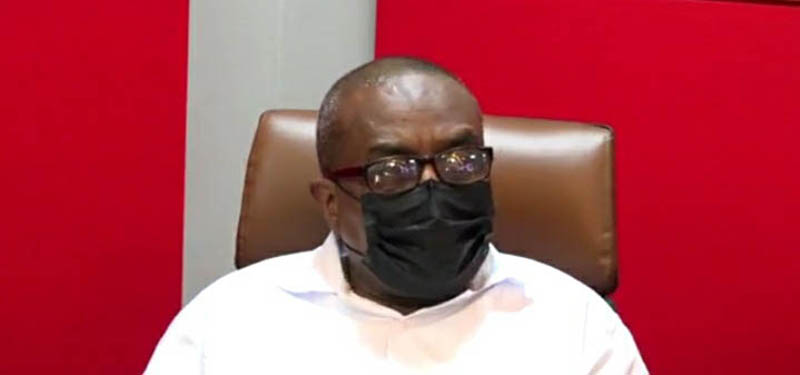Finding that he was attempting to litigate issues already pronounced upon, a Court on Friday last dismissed a suit brought by former Police Sergeant and murder accused Colin Bailey, whose contention it was, that the State had unlawfully and maliciously imprisoned him.
Justice Nareshwar Harnanan ruled that the issues raised before him by Bailey, were res judicata and therefore could not be relitigated.
According to a summary of the judgment seen by this newspaper, the Judge noted that there was nothing barring Bailey from putting all the facts in his case which had been previously determined and settled.
Citing case law authority, Justice Harnanan said that “issuing a claim that is res judicata is an abuse of process and should be dismissed.”
He then ordered that Bailey pay costs in the sum of $150,000 to the Director of Public Prosecutions (DPP) and the Attorney General (AG), (the Defendants) against whom he brought the claim.
Last year, Bailey, who was discharged of the murder of his wife after the prosecution admitted it had no evidence against him, lost a challenge against the State on the claim that it did not facilitate his trial within a reasonable timeframe.
Justice Damone Younge had dismissed his application after she found that Bailey’s right to a fair hearing had not been infringed.
In his fixed date application, Bailey (the Claimant) sought a declaration that his right to a fair hearing within a reasonable time as guaranteed by Article 144 had been infringed and was seeking damages.
The State’s contention, among other things, had been that Bailey’s criminal proceedings were dealt with expeditiously and that there had been no “undue delay” in the prosecution of his case.
It argued, also, that he failed to prove how his fundamental right to a fair hearing was breached and to advance any violations and/or infringement of Article 144 of the Constitution.
The former cop had also filed a separate $100 million wrongful arrest/imprisonment suit against the State arguing therein again, that his right to a fair hearing in reasonable time had been infringed.
It was this suit that Justice Harnanan threw out on Friday when he found in favour of the State that those matters had been determined by Justice Younge when she pronounced on the fair-hearing challenge that there were no breaches as alleged by Bailey.
In that $100 million suit, filed on December 3rd last, Bailey, who spent close to six years on remand, was seeking a number of declarations, including that his right guaranteed in Article 144 was breached.
In that claim, the State contended that Bailey essentially sought the same reliefs as sought in his application before Justice Younge “attempting herein to mask this fact by itemizing at what stages the alleged breaches occurred.”
The State strongly advanced that the Claimant sought to relitigate matters that were already heard and determined on their merit by Justice Younge; and went on to further contend that there was nothing barring the Claimant from specifically seeking the new claim; in the prior proceedings.
“The claimant was thus misusing or abusing the process of the court by bringing proceedings in respect of issues that should reasonably have been brought in the earlier proceedings,” Justice Harnanan declared.
Background
Bailey was freed after Justice Jo-Ann Barlow upheld a no-case submission made by his attorney, Nigel Hughes, following the admission by the prosecution that there was no evidence linking him to the crime.
Bailey’s common-law wife, businesswoman Sirmattie Ramnaress, 36, had been found dead on the morning of August 31, 2013 on the garage floor of her Diamond, East Bank Demerara home, with a stab wound and injuries to her head and body. An autopsy later determined that she died from cerebral haemorrhage as a result of blunt cranial trauma, compounded by fractured spine.
In November 2015, her neighbour, Colin Grant, was charged with her murder after police, being in receipt of information, were led to him and found in his possession the woman’s laptop which had her initials engraved on the battery. He then reportedly led the police to Ramnaress’ 11-point diamond ring, which he had presented to his girlfriend.
Close to three years after the murder, police informed Bailey that having conducted their investigations and based on the advice from the Director of Public Prosecutions, he would also be charged.
A jury for the trial of Bailey and his then co-accused Grant was empaneled for commencement on October 12th of 2021. Before the matter started, however, Grant indicated through his attorney that he wanted to plead to the lesser offence of manslaughter.
He subsequently accepted that he had unlawfully killed the businesswoman. He was sentenced to 21 years behind bars but will serve only eight after deductions for his guilty plea and the period he spent on remand.
In her comments prior to acquitting Bailey, Justice Barlow had cautioned that the Chambers of the Director of Public Prosecutions must ensure that cases satisfy the threshold needed before being brought to court; even as she noted that in the absence of even an iota of evidence, Bailey should not have been before the court.






